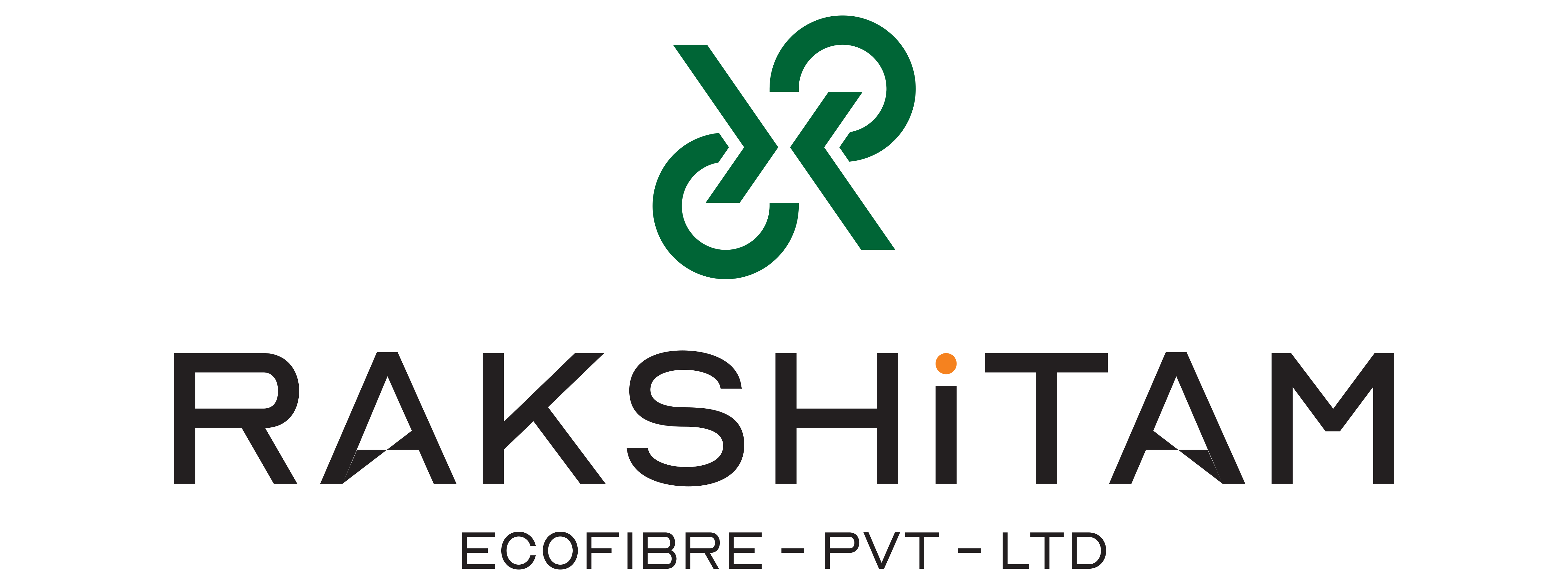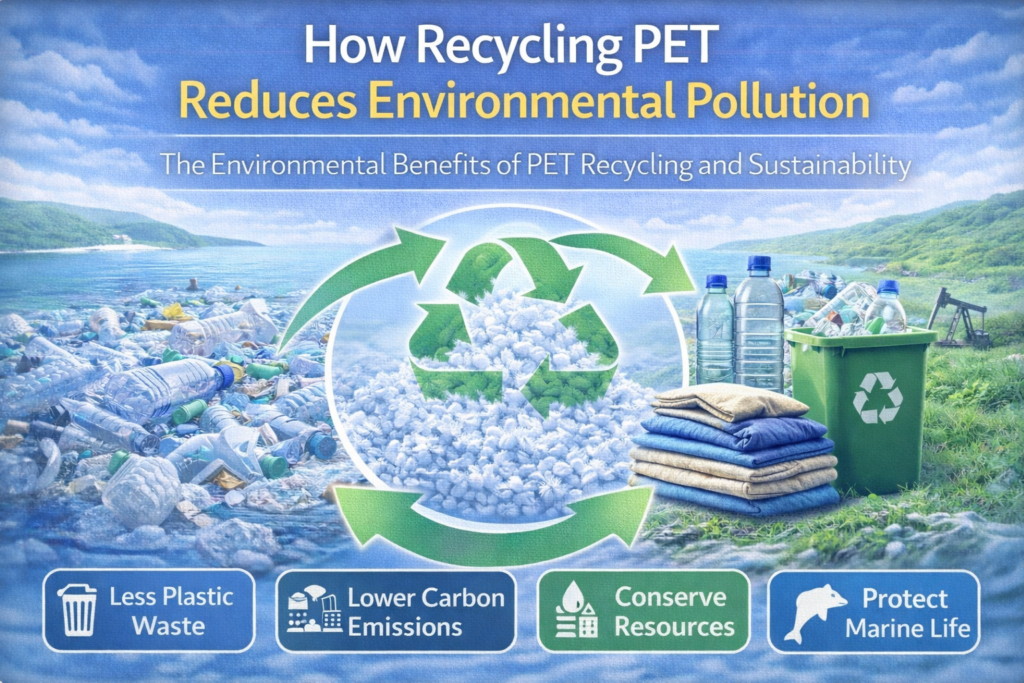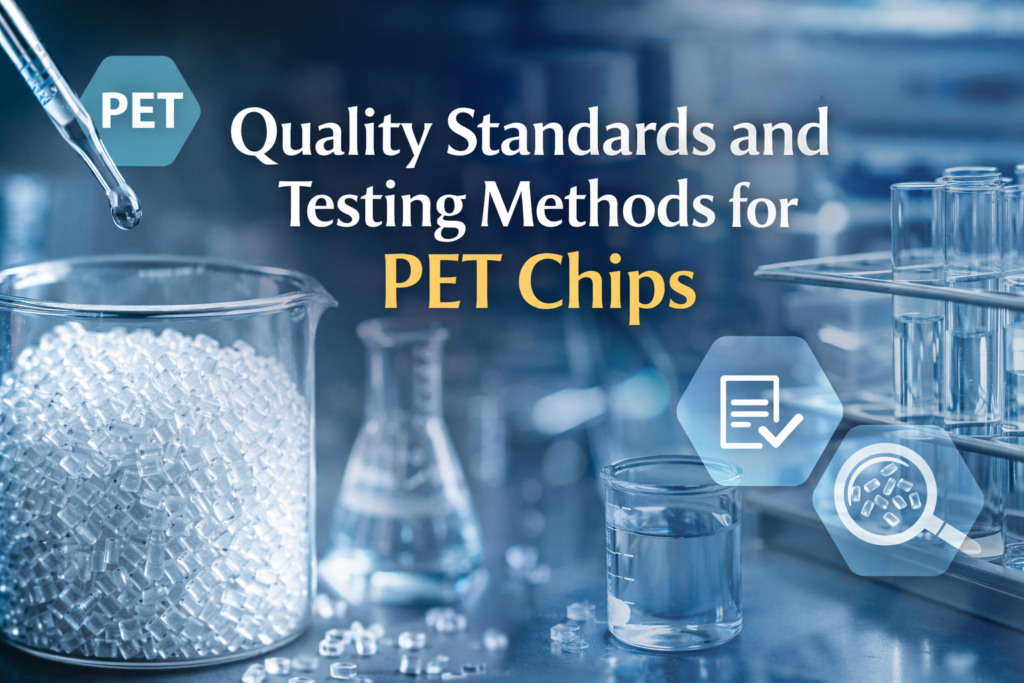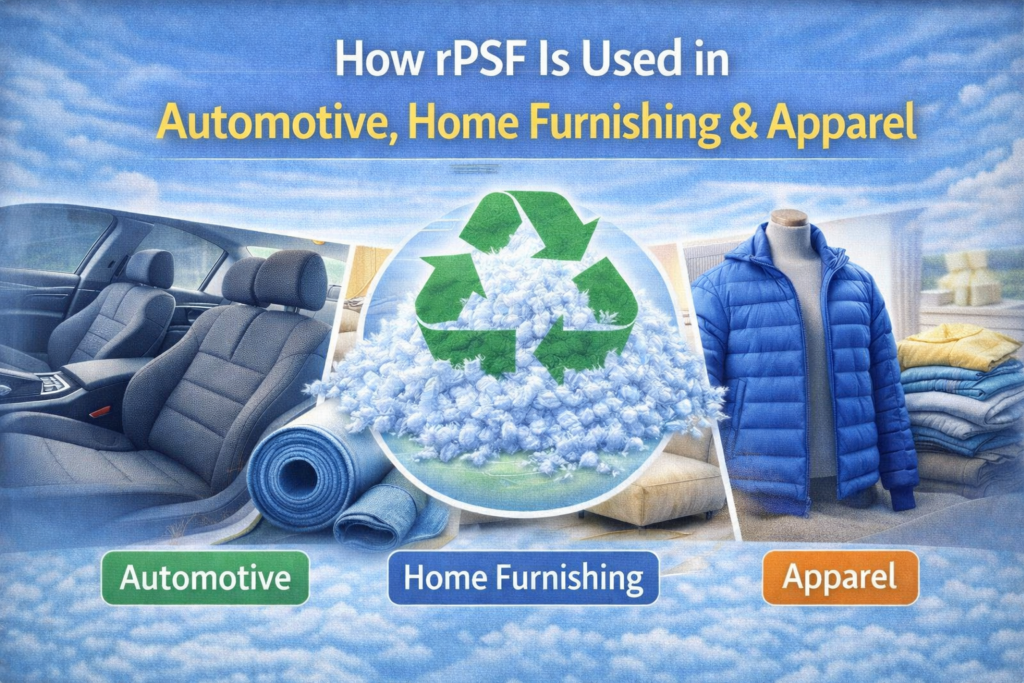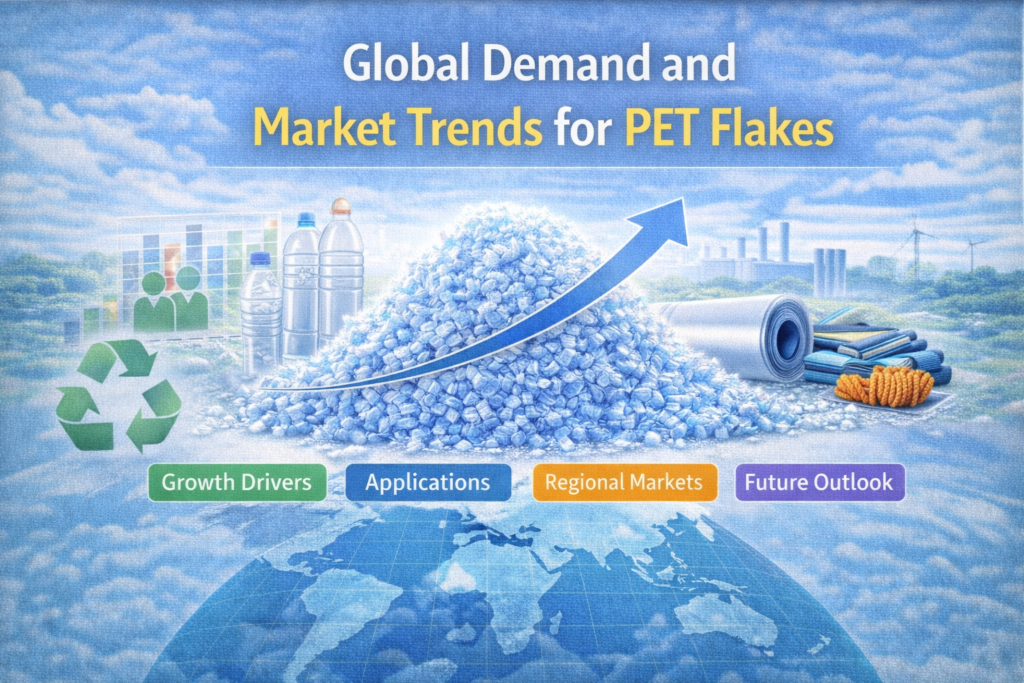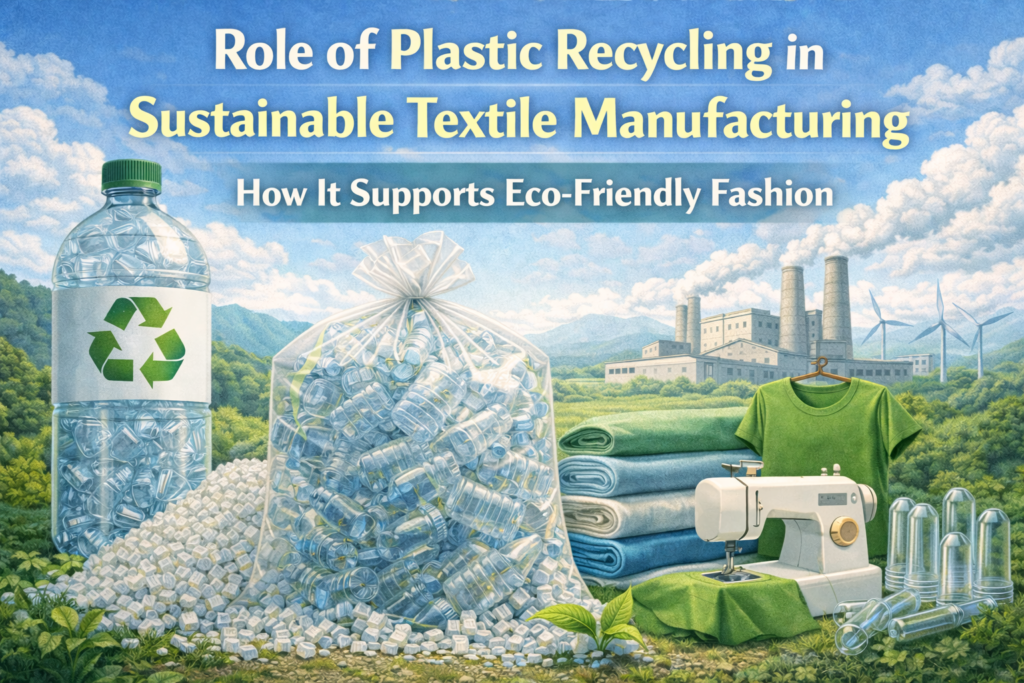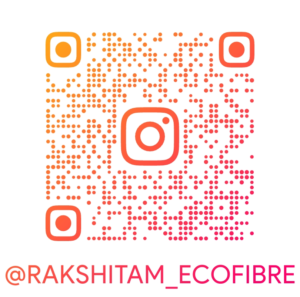Sustainable industries have pioneered the use of recycled PET (rPET) flakes. These flakes can be made from post-consumer PET Bottles and converted into a wide array of products. PET flakes now find application in clothing and food packaging, in construction along with automotive industries, and in a wide range of products. With the help of rPET flakes, a circular economy can be achieved while minimizing the use of virgin plastic.
What Are PET Flakes and Why Are They Popular In Industries?
To start with, PET flakes are tiny multipurpose square-shaped chips, which are produced by shredding, cleaning and processing recycled PET bottles. Industries prefer them because they are…
- Tough and lightweight
- Much cheaper relative to virgin resin
- Certifications available
- Environment-friendly
Due to these attributes, PET flakes are the raw material of choice for many industries.
1. Overall, the textile and apparel industry is the most prominent for purchasing PET flakes.
Production of Polyester Fiber
- Activewear and performance sportswear – engineered moisture and breathable fabrics.*
- Apparel – Jackets, dresses, and everyday clothing.*
- Home textiles – curtains, carpets, beddings, and cushions.*
- Technical textiles – uniforms, safety uniforms, and other industrial fabrics.*
Sustainability Impact
The use of PET flake textiles decreases the dependence on virgin polyester, which helps to support the circular economy, and lowers carbon emissions along with saving resources.
2. The packaging industry helps support the circular economy.
Sustainable packaging for food and beverages
- Food-grade PET bottles – for mineral water, soft drinks, and juices.
- Food containers and trays – which are microwaveable, hygienic, and other food-safe alternatives.
- Barrier packaging helps prolong the shelf life of perishable items.
Cosmetics and Personal Care Packaging
Recycled PET is also utilized in shampoo bottles, lotion jars, and cosmetic containers, where durability gets paired with environmentally friendly branding.
Sustainability Impact
Packaging is the face of recycling. Brands tout sustainability while minimizing single-use plastic by utilizing rPET.
3. Automotive Industry: Engineering Excellence with Recycled Materials
Interior Components
- Fabrics and upholstery of seats
- Carpets and mats
- Door trims and panels.
- Insulator materials.
- Under the hood applications e.g. sound damping layers.
Sustainability Impact
rPET-based components improve fuel efficiency due to less vehicle weight within rPET-based components, achieving the green mobility objectives of the automotive industry.
4. Building and Construction Materials: Eco-friendly Infrastructure
Composite Materials and Panels
- Composite decking and panels
- Insulation materials for energy efficiency
- Geotextiles for soil and road reinforcement
- Roofing materials providing longevity
- Infrastructure uses fiber-reinforced concrete.
Sustainability Contribution
Recycled PET makes the construction process more sustainable as it offers long-lasting, cost-effective, and environmentally friendly alternatives to conventional materials.
5. Home and Garden Products: Consumer Uses
- Outdoor furniture constructed from PET composites
- Lightweight and robust storage containers
- Garden accessories and planters
- Camping equipment and play equipment, recreational products
These household items illustrate the ease with which PET flakes incorporate themselves into consumer lives.
6. Electronics and Technology Industry
PET flakes are converted into:
- Thin and resilient device casings
- Safeguarding cable insulation for safety and flexibility
- Packaging components that guard sensitive electronics
7. Medical and Healthcare Uses
In the healthcare sector, recycled PET is imperative:
- Disposable medical supplies like trays and test kits
- Protective gear parts such as face shields
- Medical packaging to store sterile and safe
Quality Standards and Certification in PET Flakes Production
Industry Certifications
Used PET for food and medical purposes should satisfy certifications such as:
- FDA approval (Food and Drug Administration)
- EFSA compliance (European Food Safety Authority)
- ISO and GRS certifications for quality and sustainability
Quality Control Procedures
The manufacturers adopt stringent processes such as sorting, washing, decontamination, and melt filtration to guarantee purity, safety, and traceability of PET flakes.
Also Read: Textile-to-Textile Recycling Innovations in the Polyester Fibre Industry 2025
Conclusion: PET Flakes Pushing Industrial Sustainability
From fashion to medicine, PET flakes are transforming industries across the globe. Their adaptability, conformity with international standards, and environmentally friendly aspects position them as a must-have raw material for tomorrow. With industries making sustainability commitments, PET flakes are a beacon of innovation and circular economy strategies that ensure tomorrow’s resource is today’s waste.
